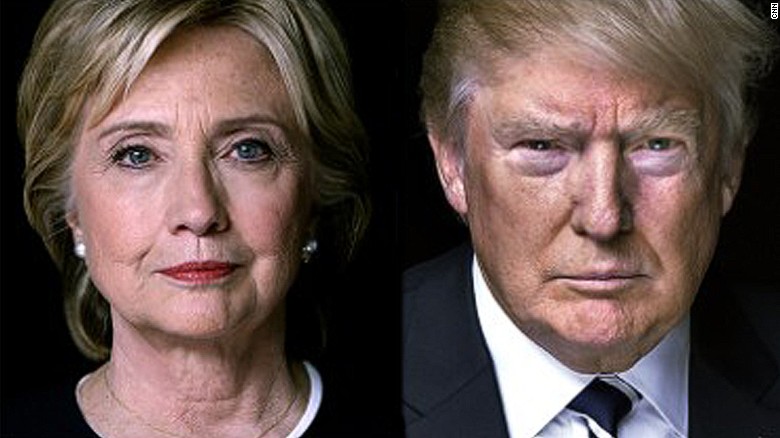Does the Health of Presidential Candidates Matter?
October 1, 2016
There is no doubt that the current health of both presidential candidates has become a hot-button elect-ability issue at this late stage in the 2016 presidential election. The general consensus of this issue has emerged due to concerns regarding recent health-related episodes displayed by Democratic nominee, Hillary Clinton.
However, these episodes are nothing new. In fact, Clinton herself has exhibited a broad series of public health issues over the last decade – starting as early as 2005.
The earliest sign of concern began with the then-New York senator speaking at an up-state luncheon in Buffalo, NY before suddenly fainting before her crowd. Upon further examination, doctors had immediately concluded she had contracted an acute gastrointestinal illness.
In December 2012, Clinton was in the news for fainting once again, this time suffering from a moderate concussion. The Secretary herself was scheduled for a testimony before the House Foreign Affairs Committee on the deadly attack on the U.S. embassy in Benghazi, Libya days after this episode, but expediently being recessed from the event due to her injury. Later that month, she was hospitalized, where doctors soon discovered a blood clot on top of her already active state of concussion.
Most recently, on September 11, Clinton had reportedly fainted while at the 9/11 memorial site in New York City. In released footage, she almost appears to be entirely unconscious as Secret Service and staffers seemingly carry her to her campaign vehicle in a fashion reminiscent of a scene from “Weekend at Bernie’s”. Her physical state in the public eye hit an all-time low.
Her campaign immediately released a statement regarding her condition afterward, outlining that she had simply “overheated” in New York, but was additionally diagnosed with a case of “non-contagious bacterial pneumonia” a day before this event.
This release received massive backlash from the medical community. Kansas diagnostic radiologist Dr. Milton Wolf even spoke out about the case, outlining that nearly all bacterial infections are highly contagious, including pneumonia, while begging the simple question, “If there is really such a thing as ‘non-contagious bacterial pneumonia’, how would Clinton have caught it in the first place?” The doctor has also placed emphasis on there being no existent ECD-10 medical code outlining such a disease.
Nevertheless, the Clinton campaign released a brief, but detailed medical report covering her recent vaccinations, procedures, and current medications she is prescribed to take. Clinton’s personal doctor has also urged that she is “healthy” and “fit to serve” as president, despite her public, medical mishaps.
Republican nominee Donald Trump, more so, has drawn no public health concerns currently. Due to impartiality, however, Trump had appeared on the Dr. Oz show on September 14 to also share a brief medical report, outlining a recent physical, citing that his only major health issue is that he is medically classified as overweight – which Trump himself has blamed on a high fast food intake over the course of his life.
Trump has publicly prided himself with a lifestyle free of alcohol following the loss of this brother, Fred Trump Jr., to alcoholism. He has also outlined that he has lived both tobacco and drug free, even trying his best to stay away from coffee throughout his life, perhaps due to its high caffeine content.
In December, the business mogul’s personal doctor, Jacob Bornstein, M.D., had received fierce backlash following a letter released after their last appointment, claiming that Trump would be “the healthiest individual ever elected to the presidency”, stressing “extraordinary” stamina and physical strength, also highlighting that his only documented medical procedure performed was an appendectomy when he was ten years old.
Trump’s medical records also outlined his most recent vaccinations, procedures, and medications. When reviewed, they only seemed to ring a truly positive result for a man his age. Dr. Oz had even stated in an interview with TODAY that all of the materials presented were to his expectations of someone seeking the presidential office, and were specifically impressive compared the consistent news breaks of Clinton’s recurring health issues.
With all of this information though, one must beg the question – how truly significant is the health of our presidential candidates?
To put it blunt: very.
The medical health of any person running for the highest office in the land is just as noteworthy as their financial health. If one looks at a candidate’s financial history and notices frivolous spending, hypocrisy in terms of tax management, or any other fiscal attribute that may run in contrast with their message, it displays one simple notion: what ability do they have to operate the position they are running for?
Health falls into a similar bracket. What physical, mental, and emotional states do these individuals possess and could they possibly run the most powerful nation in the world with said conditions?
The citizens of this country deserve to receive truthful feedback on a candidate’s health concerns. However, it must be recognized that no candidate should be immediately required to disclose such information if they do not feel comfortable with it, nor feel it is necessary. They, as candidates, possess the same rights to privacy that any other citizens do. That, in all, must be kept in mind.
If a candidate’s support may suffer due to a lack of transparency with such information, though, perhaps it may further incentivize them to be more unambiguous with their constituencies.
Bringing the health of these high-staked candidates into the public eye is unequivocally nothing out of the ordinary, as well. In 2008, John McCain’s late-age in running for president, at seventy-one, baited him into similar health concerns. An arguably incorrect analysis on McCain’s health was observed by NBC News, claiming that there was a “one in four chance” that the 2008 Republican nominee would “not survive a second term” as president.
Though the McCain campaign had released some of the most detailed medical documents ever publicly revealed, the rumor had already set in stone. Some still argue today that the 2008 election may have changed its course if the health concerns of the Arizona senator hadn’t achieved such prominence in the mainstream.
In assurance that rumors do not simply run wild, it is gravely important that our media covers these stories closely and accurately, and provide a concise understanding of what strength and energy our next commander-in-chief will have. The voters, in return, must decide who will best lead us forward.







